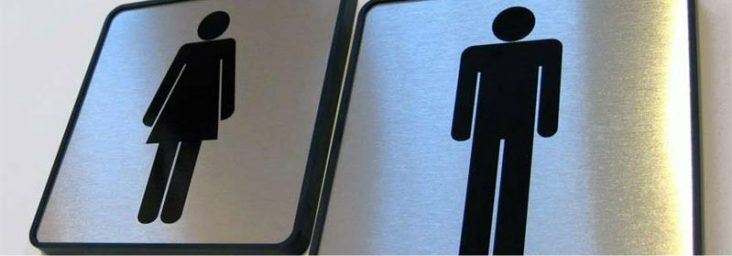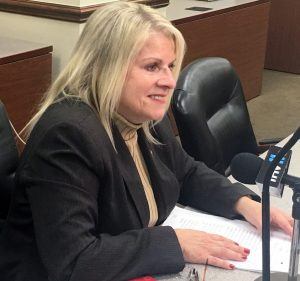Arkansas bathroom bill debated, temporarily pulled
by March 15, 2017 6:33 pm 942 views

The sponsor of a bill that would require public facilities to designate single gender bathrooms and allow them to be sued after intrusions temporarily pulled her bill Wednesday because a supporter was absent from the committee.
Senate Bill 774 by Sen. Linda Collins-Smith, R-Pocahontas, the Arkansas Physical Privacy and Safety Act, was debated by the Senate Judiciary Committee for more than an hour. Collins-Smith decided to pull the bill because a supporter, Sen. Greg Standridge, R-Russellville, was absent from the committee and could not be reached by phone. Standridge earlier in the session introduced a “shell bill” – one with just a title – that would limit transgender use of bathrooms.
The bill requires all multi-person restrooms and changing facilities in government buildings to be designated for one gender and used by one gender, defined as “a person’s immutable biological sex as objectively determined by anatomy and genetics existing at the time of birth.” Government entities could be sued up to four years after the intrusion, with plaintiffs able to recover damages “for all psychological, emotional, and physical harm suffered,” the bill says.
Exceptions would be made for people who enter into the opposite gender restroom for custodial or maintenance, to provide medical assistance, or during a natural disaster or emergency. Government agencies could adopt policies accommodating individuals with disabilities and young children. However, the bill would not allow mixed use of the restrooms at the same time.
Sen. Trent Garner, R-El Dorado, said he could support parts of the bill but expressed concern about allowing plaintiffs to sue public entities, including schools. The bill requires facilities to take “reasonable steps” to prevent individuals from entering the wrong bathrooms, which Garner said was too broad. Collins-Smith said afterward that she would discuss Garner’s concerns with him before the bill is reconsidered by the committee Monday.

Collins-Smith said the bill is necessary to allow women and children to feel safe in bathrooms.
“We can protect the privacy and dignity of all people by passing this bill,” she said.
Sen. Jeremy Hutchinson, R-Little Rock, said the bill would open a new cause of action for individuals to sue school districts. He said public facilities could be sued if someone accidentally walked into the wrong bathroom. He said the bill is “trying to fix a problem that I think is unfixable” and pointed to situations where a person born a male but who looks like a woman would be forced to walk into the same bathroom with his son – an awkward situation for both.
Sen. Gary Stubblefield, R-Branch, said at one of the schools in his district, three sets of parents have threatened to sue because a transgender student has been using the bathroom with their children. When the administrator threatened to expel the student, the student threatened a lawsuit as well.
Gov. Asa Hutchinson has said multiple times the state should not pass a bathroom bill this session after a transgender bathroom bill in North Carolina generated nationwide controversy and led to the loss of job expansions and sporting and entertainment events. Collins-Smith said repeatedly that the bill differs from the North Carolina law in that it doesn’t apply to private entities.
Several from the audience spoke against the bill, including Michael Marion, general manager of Verizon Arena, who said Cirque du Soleil and the rock group Boston have booked dates at the arena but have also cancelled dates in North Carolina after the law was passed there. He said acts have made it clear they would boycott the state if a law similar to North Carolina’s is passed.
Gretchen Hall, president and CEO of the Little Rock Convention and Visitors Bureau, said the law could make public facilities liable based on an encounter those facilities cannot protect against. She asked how the facilities would know if someone identified at birth as male but who appears female was walking into the women’s restroom.
The bill was debated on the same day that the Texas Senate approved a bathroom bill that faces significant opposition in that state’s House of Representatives.
